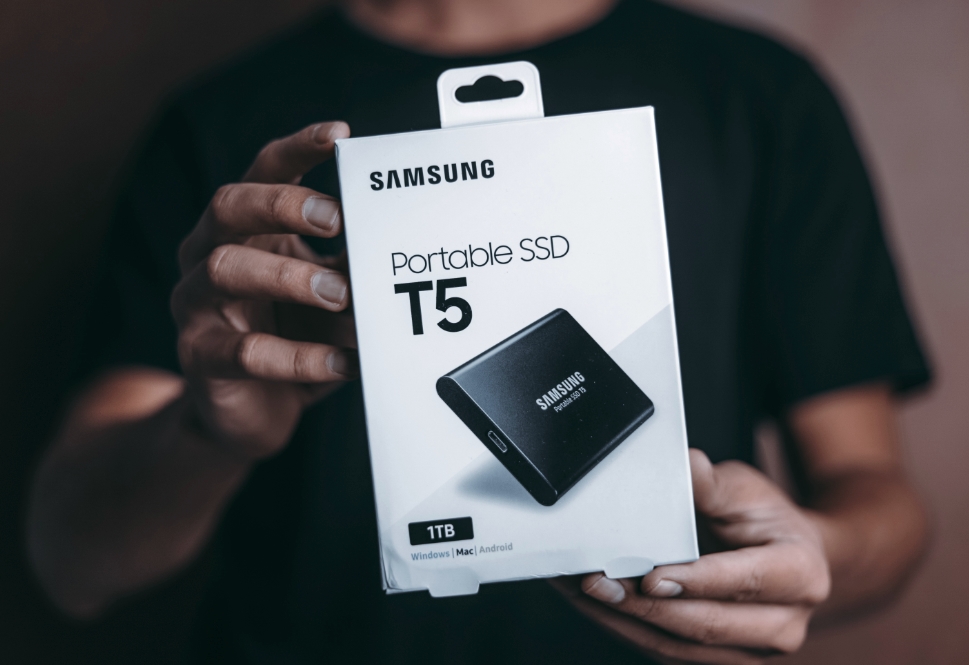A computer’s hard drive stores all of the files locally, as well as storing the program files necessary to run many of the applications we use on our computers daily. Tech Support Jacksonville offers both cloud computing solutions, and IT disaster recovery plans in order to prevent data loss, but each computer will still have a hard drive. The question is – which type of hard drive should our computers have and is it worth the cost to upgrade to solid state drives?
Hard Disk Drives
First, a traditional hard disk drive (HDD) stores the long-term data on a spinning metal disk with a magnetic coating. There is an arm that accesses the data and numerous other parts that allow this disk to spin at very rapid speeds (typically 5,400 to 10,000 revolutions per minute or RPM). The faster a HDD spins, the better its performance. In addition to RPMs, a HDD has cache, which is dedicated memory for the HDD. Often computer operating systems access the most recently edited files on the cache of a HDD. This greatly improves the speed of accessing the files. However, before paying big money to get a HDD with 64MB cache or more, the speed returns above about 8MB cache are pretty minor. For instance, one study showed almost no difference between two nearly identical HDDs in Read Transfer Rates and Write Transfer Rates when the cache of two HDDs was compared. This means that generally, the benefit in HDDs is in having a better RPM (7200 instead of 5400) instead of spending money to increase the size of the HDD cache (16 mb instead of 8 mb).
Solid State Hard Drives
Second, a solid state drive (SSD) stores long-term data on the local computer, just like a HDD, but instead of a spinning metal disk, it stores information on flash-memory chips. While similar to a USB thumb drive, the memory chips on SSDs are faster and more reliable. Because the information can be accessed with flash-memory, a computer operating system can access the data on a SSD much faster than a HDD. For instance, most SSDs can access data at read / write speeds between 300 to 500 MB/s whereas most HDDs (even at 7200 RPM) only achieve read/write speeds between 100 to 160 MB/s. This means many computers whose operating systems are installed on a SSD can boot up in less than a minute!
Also, because the SSD has no mechanical or moving parts, it is not subject to the wear and tear of a traditional hard drive. This is especially helpful in laptops that are moved around and used, well, on our laps. The jostling that a laptop endures over its lifetime can wear down the arm or metal disk of a HDD, whereas a SSD does not face this problem.
Now, let’s compare cost. A quick perusal revealed that most 1 TB HDDs with 7200 RPM cost between $40 and $70 depending on the brand. However, a 1 TB SSD costs between $100 and $150. For some, the cost of SSDs outweighs the benefits of speed and reliability.
Summary HDD vs. SSD?
The benefit of most HDD’s is that they are inexpensive and come standard on most pre-assembled computer configurations. Also, HDDs tend to come with much more storage capacity. The drawback is that they are slower and more prone to breaking.
The benefit of most SSDs is that they are much faster and more reliable than HDDs. The drawback is that they are more expensive and typically come with much less storage space than HDDs.
Depending on your company’s budget, upgrading every computer to a large capacity SSD at $100 a computer may not be feasible. However, Tech Support Jacksonville recommends using a central server or cloud servers to store most of the working files. This means that each workstation needs far less capacity for storing files because most of the files should be stored on the server (whether local or in the cloud). Thus, most workstations do not need 1 TB of storage capacity. Instead a 240 GB SSD or a 500 GB SSD should suffice for most computers. And, a 240 GB SSD costs approximately the same as a 1 TB HDD. For most companies, the sacrifice of storage capacity is a small trade to gain the incredibly faster speeds and reliability that SSDs offer.
A Hybrid Hard Drive Option?
For some workstations, two hard drives can be installed. A SSD can be installed and run the computer’s operating system and vital software. This provides the much faster boot times. Then, a HDD can be installed as a storage drive for files that do not need to be accessed as frequently. With a hybrid setup, the SSD can be very small (maybe 128 GB), and a standard HDD (1 TB at 7200 RPM) provides ample storage capacity. This may be the optimum setup for any new computer at your office.
How Can Tech Support Jax Help?
Whichever you decide, Tech Support Jacksonville can help. First, we can survey each of your current computers to determine which would most need upgrades. Second, we can find the best prices on computer hardware. Third, we can upgrade any computers from HDDs to SSDs or to hybrid configurations. Fourth, we can provide cloud serving solutions to reduce the need for large storage capacity on local machines. Contact us today and let us schedule an in-person meeting to discuss upgrading your systems.

